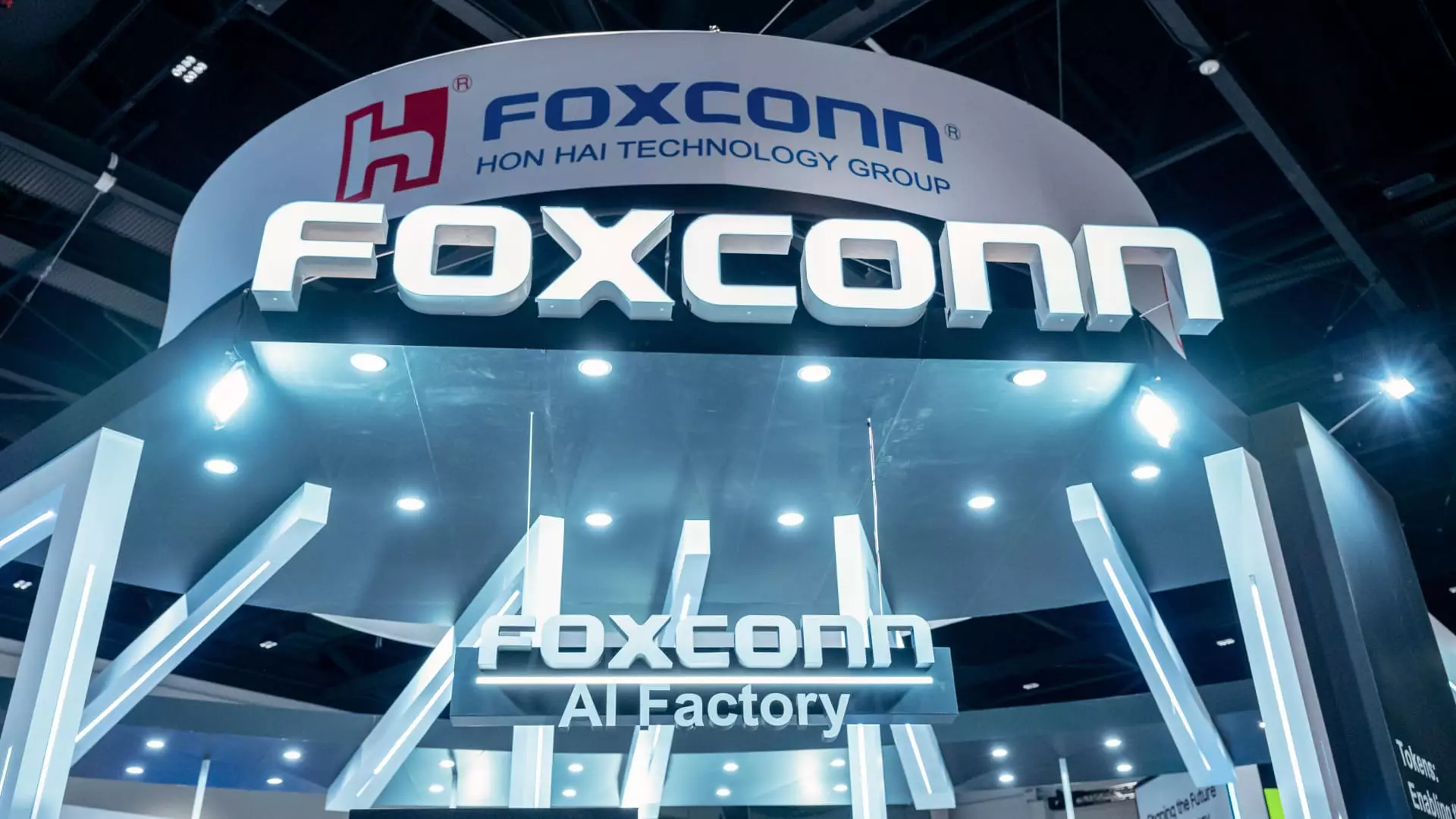Foxconn, the colossal titan behind the world’s most ubiquitous gadgets, has once again demonstrated its undeniable dominance in the technology manufacturing landscape. With an impressive 27% increase in operating profits during the second quarter of 2025, the company’s financial performance defies the skeptics and unsettles its critics. But beneath this robust growth lies a complex web of geopolitical risks, strategic shifts, and economic dependencies that threaten to undermine its apparent stability. As a center-right observer, I see Foxconn’s recent success not merely as a testament to operational prowess but as a fragile bubble that could burst under mounting global pressures.
The company reported revenues matching analyst expectations at NT$1.79 trillion (~$59.73 billion), a feat that underscores its resilience amidst turbulent economic conditions. Yet, the real story is its shifting revenue composition: a historic milestone where its AI server business eclipsed traditional consumer electronics sales. Foxconn’s pivot into AI servers—principally partnering with Nvidia—positions the firm at the forefront of the next technological revolution. This strategic shift may appear to signal a bright future, but it also exposes the company to the volatility of a rapidly evolving sector staunchly shaped by geopolitical tensions and surging tariffs. The company’s forecast of a 170% YoY revenue surge in AI servers invites optimism, yet such lofty projections may be overly ambitious amidst the unpredictable global climate.
Strategic Moves and Political Turmoil: A Ticking Time Bomb
Foxconn’s proactive steps—particularly its investments in AI data centers, its stake in TECO Electric & Machinery, and plans to diversify into electric vehicles and semiconductors—highlight an ambitious quest for maintaining its global relevance. However, these efforts exist in a political minefield. U.S.-China tensions and the Trump administration’s aggressive tariff policies cast long shadows over Foxconn’s future prospects.
The move to shift production of U.S.-bound iPhones to India speaks volumes. It might be an attempt to hedge against tariffs, but it also signifies a loss of sought-after “Made in Taiwan” prestige and the risks of geopolitical entanglement. The planned $1 billion investment in the U.S.—while seemingly a positive step—does little to mask the deeper strategic vulnerability: increasing reliance on a fractured global supply chain. Each new investment and partnership is a gamble that could either secure a foothold in North America or become a political pawn in diplomatic tensions.
Furthermore, the upcoming tariffs announced by Trump—aimed at semiconductors and chips—could cripple Foxconn’s core electronics manufacturing segment. While the company claims to be building more in the U.S., these political maneuvers threaten to fragment its supply chain. The result could be higher costs, reduced flexibility, and a potential decline in global competitiveness. It is one thing to announce expansion plans; it is another to execute them when geopolitical winds shift unpredictably.
The Illusion of Unassailable Dominance
What is particularly striking is the narrative that Foxconn’s recent achievements suggest invincibility. Yet, this veneer of dominance is only as firm as the political and economic environment allows. The company’s heavy reliance on U.S. partnerships and China’s manufacturing might create a precarious balancing act. The push into AI and electric vehicles shows strategic foresight but also heavy reliance on volatile sectors that could underperform or become politicized.
Moreover, there is a broader question of sustainability. Foxconn’s aggressive expansion efforts, while promising in a bullish market, risk overextension. The company’s ambitions to conquer new markets and technologies only emphasize how dependent it remains on the global geopolitical climate. Should tensions escalate further, or should tariffs and trade restrictions tighten, Foxconn’s growth could be abruptly derailed. It is naïve to assume that a company with such vast geopolitical exposure can maintain its trajectory unscathed; history suggests otherwise.
In essence, Foxconn’s recent financial triumphs are a fleeting sign of resilience amidst a looming storm of geopolitical and economic instability. The firm’s strategic moves indicate keen adaptability, but they should not obscure the mounting vulnerabilities—risks that could undermine its shining growth story. This is not an unshakeable empire but an intricate, fragile construct perched precariously on the fluctuating tides of global politics.

